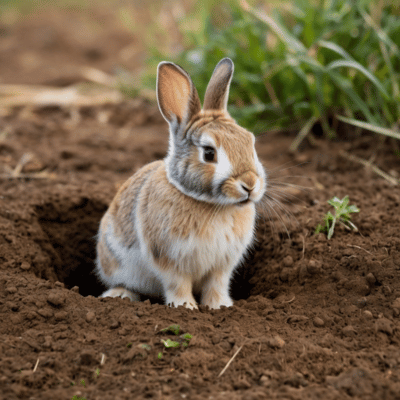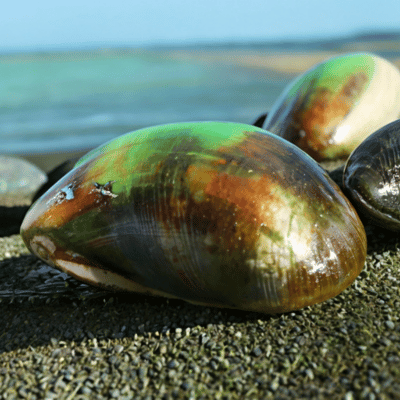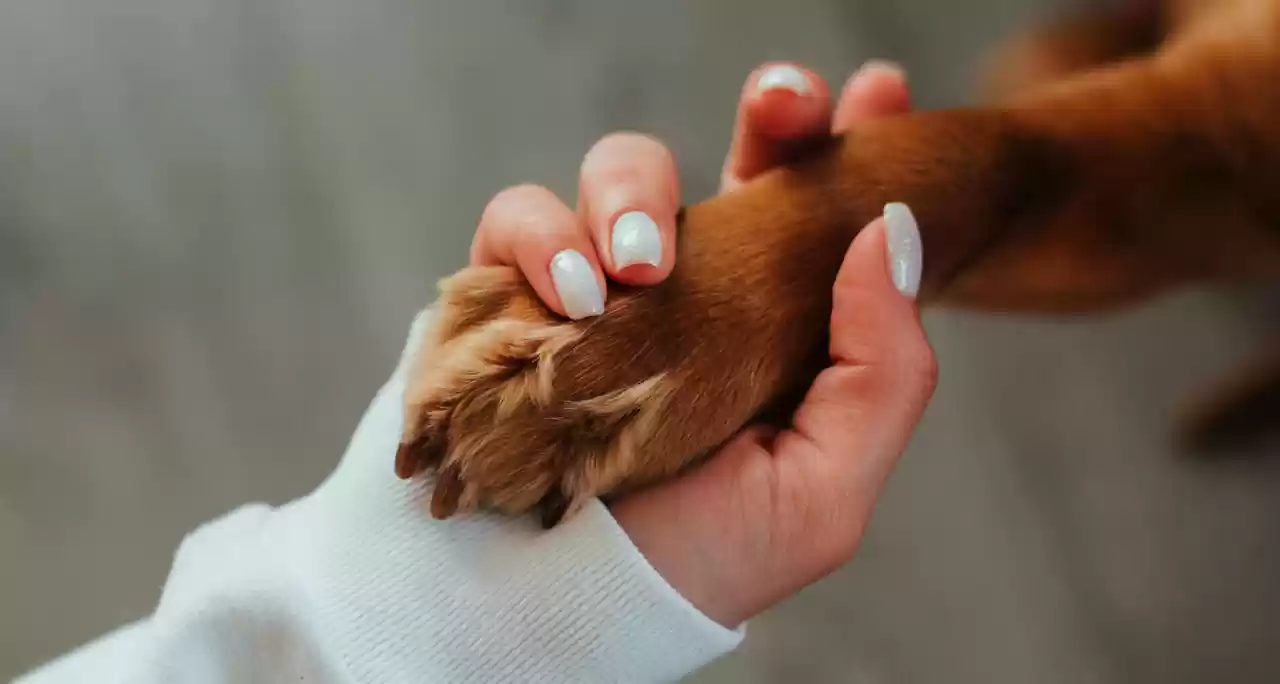All of our recommendations are made after having done independent research on them. If you click on links we provide, we may receive compensation.

Why Does My Rabbit Pee After Digging?
by Arsh deep
Overview
Understanding This Curious Behavior
Rabbits are great animals with quite an odd behavior in many cases. There is one that may raise an eyebrow of rabbit owners and that is when the rabbit decides to dig and then proceeds to pee. This is something I observed with my rabbit Bella, she would dig at the spot she loved most and after that she would pee. From my independent investigation with my rabbit and through the use of various sources, I have been able to establish some reasons as to why rabbits do this and how it can be controlled.
Understanding the Instincts Behind Digging
First of all, one should remember that digging is a normal behavior for rabbits and it is not correct to punish the rabbit for this. Rabbits are also known to dig burrows in the wild because of shelter, safety and to hide from predators. This instinct doesn’t disappear just because they get domesticated.” Your rabbit might be attempting to perform this act if he or she feels the urge to build a safe nest.
Excavation can also be associated with such conditions as boredom, stress or need in physical activity. For this reason, whenever Bella was bored, or when she had a lot of energy to expend, she would dig. This digging behavior, however, becomes even more puzzling when it is followed by peeing, as if the dog wants to signal that the particular area is its territory.
Why Does Peeing Follow Digging?
From what I’ve gathered through research and observing Bella, here are the most common reasons why a rabbit might pee after digging: From what I’ve gathered through research and observing Bella, here are the most common reasons why a rabbit might pee after digging:
1. Territorial Marking
Rabbits are territorial animals. Chasing and pawing the ground and then urinating can be their manner of staking a claim on the area. Your rabbit may be trying to mark that area as his own by peeing there after digging it up.
Personal Experience: I noticed that Bella was more likely to dig and then pee in new areas of the house. It was almost as if she was saying, “This spot is mine now.”
2. Stress or Anxiety
Stress and anxiety can make rabbits dig and pee. This can occur if there has been change of environment such as moving the cage or introducing another pet.
Tips: It is, therefore, important to observe what is happening in the rabbit’s environment when this behavior is observed. Thus, one must reduce stress factors and provide a consistent schedule to avoid such actions.
3. Hormonal Behavior
Unneutered rabbits are known to exhibit territorial and hormonal behaviors like digging as well as peeing. This is usually a way through which the male will try to dominate or seduce a female in the group.
Advice: If your rabbit is not spayed or neutered, you may wish to discuss this with your veterinarian. These behaviors can be reduced by neutering.
4. Litter Training Issues
Also, rabbits may kick the litter in their hutch and by doing so, they may urinate at the same time. Such behavior may mean that the rabbit is not fully housetrained or the rabbit is not sure where to go to the bathroom.
Personal Tip: Bella for instance at first was involved in a few accidents like this. I had to ensure that I took her to the litter box soon after she dug at any other place that was not the designated area to enable her know that that is where she should be peeing.
5. Seeking Comfort
Rabbits may also dig to make a comfortable place to pee as they do in the wild before defecating. The digging is a way of making a sort of a small hole or bowl in the ground in which they feel comfortable to defecate.
Observation: There are times that Bella will first scratch the area where she is going to pee such as on the blanket or the rug and this makes me think that she is trying to make a comfortable spot to pee.
How to Manage Digging and Peeing
If your rabbit’s digging and peeing are becoming an issue, there are steps you can take to manage this behavior: If your rabbit’s digging and peeing are becoming an issue, there are steps you can take to manage this behavior:
1. Provide Appropriate Digging Areas
Digging is a normal activity for a rabbit, therefore it is crucial to provide the pet with proper area where it can dig. This can be digging box with shredded papers, hay or safe soil.
Tip: For instance, I developed a digging box for Bella using a cardboard box full of hay. It is loved by her and has eliminated digging in other areas to a great extent.
2. Reinforce Litter Training
If the digging and peeing are in connection to the litter training problems then this training should be reinforced. Ensure that the litter box of your rabbit is clean always and that the rabbit is able to access it at all times.
Personal Experience: Each time Bella would dig in the wrong area, she was taken to her litter box and placed there so that she could learn that was where she was supposed to pee.
3. Reduce Stress
If one is convinced that stress is the cause of digging and peeing in the cage, then he or she should try to find out what could be causing the stress and eliminate it. Give lots of opportunities to hide, keep the rabbit’s schedule regular and make sure the rabbit has enough space and toys.
Observation: Bella’s behavior improved when i provided her with a small room where she could go and stay whenever she felt stressed, her behavior became better.
4. Consider Spaying/Neutering
If hormonal behavior is the root cause then the rabbit should be spayed or neutered. This will cut down territorial behavior and make them more at ease in general.
Advice: After taking Bella for spaying, I realized that the digging and peeing which were signs of her being territorial reduced greatly.
When to Consult a Vet
If your rabbit displays such behavior even after applying the above techniques or if it exhibits other signs such as frequent drinking, weight loss, or lack of energy, you should take the rabbit to a vet. These could be signs of a health problem which requires medical attention from a doctor.
If you understand why your rabbit is digging and peeing, you will be able to calm your rabbit down and stop him or her from continuing such behaviors. Seeing Bella become more at ease and confident in her surroundings has been very fulfilling and I wish these observations would assist you handle your rabbit’s oddities as well..
Sources:
- Territorial Marking by Rabbits | Scientific American
- Scent marking by the male domestic rabbit (ScienceDirect)
- rabbits-behavior.pdf (avianexoticvetcare.com)
If you have any further questions or need additional advice on rabbit care, feel free to reach out!
1. Is it okay that rabbits dig and then pee on the area?
Yes, it’s quite common. Burying itself is normal for rabbits and peeing after may be territorial, stressed or a hormonal one. One must look at the behavior to see what might be the cause of such behavior as this may not always be normal.
2. My rabbit has developed a habit of digging and then proceeding to pee in the same hole, how do I prevent it?
To control such behavior you can let your rabbit dig in specific areas, remind him about litter training, try to reduce stress, and/or neuter him. Every rabbit is different and as such, it is possible to take sometime before identifying the right solution.
3. I have a rabbit as a pet and I have noticed it is digging and peeing a lot, should I be worried?
While excessive grooming is normal, if the behavior becomes obsessive or is coupled with other signs such as tiredness, loss of weight or appetite then one should see the vet. Digging and peeing for long may be as a result of some illness or the pet is stressed.
4. Is it possible that digging and peeing be attributed to the diet of my rabbit?
Compared to digging and peeing which are more associated with behaviour, stress and hormones, diet can influence general health and therefore may have an influence on these behaviours. It is important to feed your rabbit properly in order to support his/her health condition most of the times.
5. What kind of digging box should I give my rabbit?
A digging box can be made from a cardboard box and then filled with items that are safe for the child such as hay, shredded paper or sand. It should be made of a strong material and of a sufficient size so that your rabbit can fit into it and dig around. Offering this outlet might assist in curbing the cases of digging and peeing at wrong places.
6. Does spaying or neutering have an effect on rabbits so as to prevent them from digging and peeing?
Some common undesirable behaviors such as territorial marking and digging can also be minimized through spaying or neutering. It may not always prevent the behaviour but usually helps to have a much more relaxed rabbit.
7. Does digging always indicate stress or anxiety in rabbits?
Not necessarily. Digging can also be a sign of stress but it is very normal for rabbits to dig. There are several other factors that should be taken into consideration in order to understand if rabbit is stressed, for example, changes in environment or in a rabbit’s schedule.
8. Is it possible to teach my rabbit not to dig and pee on the carpet?
Yes, with time and encouragement you can train your rabbit to dig only in the right areas and use a litter box. One may redirect their behavior and then reward them when they dig in the right areas.
9. What can I do when my rabbit is marking furniture or carpets after digging?
First of all, it is recommended to wash the area and to remove any smell left by rabbits because the animals have their preferred locations. After that, offer a digging box and repeat the process of litter training. If the behavior persists, it may be advisable to take the animal to the vet for a check-up.
10. When should I get professional help for my rabbit’s digging and peeing behaviour?
If the rabbit’s behavior is too intense, or if there are other signs that are not quite right, it is best to see a vet. A vet can then advise as to whether there is a medical condition or if perhaps behaviour modification may be necessary.










